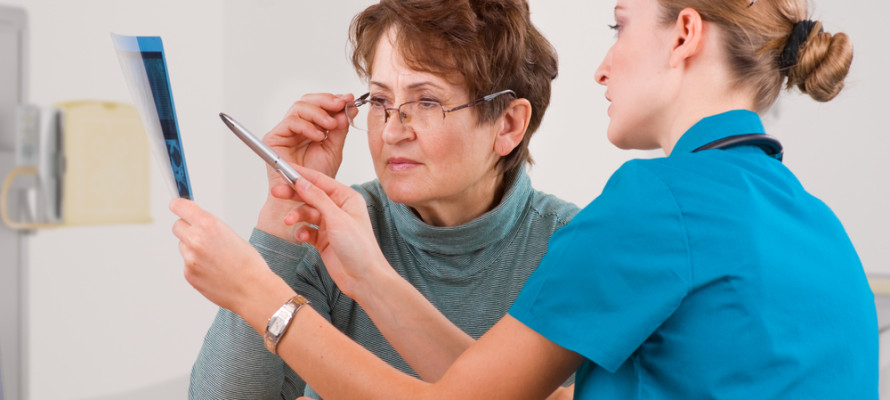In a major cancer research breakthrough, an Israeli team is launching new cancer screening tests which can achieve far more accurate results in the detection of breast cancer.
In a significant scientific leap toward achieving more accurate results than with traditional mammographic screening methods, Eventus Diagnostics, Inc. (EventusDx) is launching two new tests known as the Octava series: Octava Pink and Octava Blue, developed by the company’s Israel-based R&D center.
Intended to be used in conjunction with traditional screening techniques, Octava Pink will help physicians confirm negative mammogram results with higher accuracy. This would be done through identifying cancer in more than half of occurrences where the result is negative but cancer is actually present.
Current studies show that between 10 and 30 percent of negative mammogram results turn out to be inaccurate, and this is even more common in women with dense breast tissue – roughly 40 percent of all women.
Octava Pink will also assist in an estimated five percent of core needle breast biopsy results that give false negative answers. According to EventusDx Chief Medical Officer Professor Benjamin Piura, professor emeritus of obstetrics and gynecology at Ben-Gurion University of the Negev, Octava Pink was developed “to address a serious shortcoming of mammography – the high rate of false negative results.”
The Octava Blue test, on the other hand, also designed to be used together with traditional mammogram techniques, will assist physicians in confirming positive cancer results from tests with a higher accuracy, helping to reduce significantly the number of false positives. Current research shows that approximately 80 percent of biopsies done following an abnormal mammography turn out to be negative. In this regard, Octava Blue will assist in reducing unnecessary biopsies by as much as 50 percent, lessening angst among women and cutting medical costs to the patient.
EventusDx’s Israel-based research team, headed by Professor Galit Yahalom at the company’s laboratories near Jerusalem, led a team of scientists over the past years to determine which proteins that appear in blood samples indicate breast cancer cells, according to Israel21c.
EventusDx: Results from Blood Samples Available within Days
Both Octava exams work through providing a simple blood sample, which according to EventusDx would be sent to a central laboratory, producing results in a matter of days.
The Octava test series has been verified by clinical studies done on over 800 women from Israel, the US and Italy, and has already been approved for marketing in the European Union. Octava Pink is currently available as part of a pilot program conducted in cancer centers in Israel and Italy, while an Octava Blue test on a pilot basis will be forthcoming. EventusDx is planning on submitting the products for FDA approval in the US throughout 2014.
Breast cancer is considered to be the most common cancer among women, with 1.7 million new cases diagnosed in 2012 alone. According to World Cancer Research Fund International, this amounts to 12 percent of all new cancer cases and roughly 25 percent of all cancer discovered in women. In Israel alone, 4,500 women are diagnosed yearly with the disease, according to the Israel Cancer Association, and approximately 900 women will die every year as a result. Cancer experts estimate that early detection can raise survival rates to nearly 90 percent.
Written by United with Israel Staff
